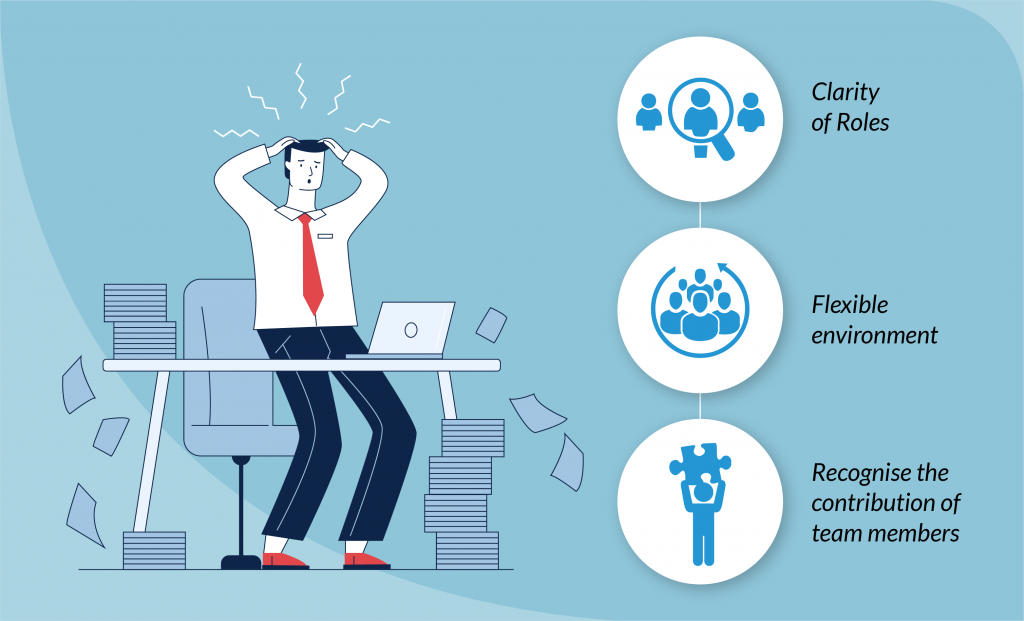Why is it important to manage your employee’s stress ever than before? – Part I

A Hyper-connected World
Today we live in a digitised world, and we can get in with our people at our workplace at a click of a button. Hyper-connectivity offers us the opportunity of transcending environment to work with people whom we may only meet online, yet the workflow continues.
Seamless connectivity means you are expected to have a zero downtime. We all need everything instantly like for food, we have instant noodles, or we order instantaneously on Swiggy or Zomato. We are living our lives the instant way (however, thanks to coronavirus we have been thrown out of gear for now!). It has long crept into our offices, and we are all culprits of expecting an immediate reply or acknowledgement by managers or peers even after work hours leading to blurring lines between work-life balances.
A considerable pressure on employees to prove themselves means clocking long working hours that are not only hazardous for the employee but toxic for the workplace too. Other stress factors may include
- inadequate support from peers or the team-head
- micro-management
- limited scope for growth or career advancement,
- work is not challenging enough,
- unfavourable work environment,
- pay raise not equivalent to industry standards etc.
Managers need to keep an eye on such tell-tale signs, as such a scenario can lead to emotionally drained out and overstressed employees. This may eventually impact relationships between colleagues and affect personal life also. Job stress also has financial implications because it leads to absenteeism and the possibility of an increase in medical expenses and insurance claims. How and what can Managers do at the workplace to reduce employees stress levels? Here are a few ideas that may help reduce stress at the workplace while making it more favourable:
- Clarity of Roles
- Flexible Environment
- Recognise the contribution of team Members
- Encourage team members to take a break
- Bonding with the team outside
- Encourage transparent communication
- Be a role model
While we have always maintained a single blog for HR, however, I am splitting this blog into two series to avoid reader fatigue.
- Clarity of Roles: According to effectory.com, a platform for employee feedback solutions, employees who experience clarity of role and their contribution to the team goals, work 53% more effectively and 27% more efficiently. It also increases trust among colleagues and leads to an increase in employee’s work tenure with the organisation.
- Flexible environment: The business scenario has never been more dynamic. By prioritising employees as their first customer and weaving a positive employee experience, you will only foster a positive, innovative culture and better productivity too.
Offering a flexible environment, friendly culture and work-life balance does not only make the employees feel more appreciated and valued; they will give in their maximum effort to meet the manager and company expectations. It also helps to attract hire and retain talent who are willing to work for such organisations.
Unforeseen circumstances like the current scenario of COVID-19 scare is having a growing impact on the world economy, causing the work dynamics to change. Many organisations have curtailed travel and implemented work from home for business continuity.
- Recognise the contribution of team members: Employees are an essential key to a successful business, and they stay or choose to leave because of how their work is appreciated. Recognising employees for their contribution to work is akin to a magic potion to improve employee engagement. Still, it has to be a tailored-made effort rather than one size fits all approach.
A lack of a formal recognition program should not be a hindrance. Even recognising individual efforts goes a long way. It elevates the recognised employee’s performance. And as Dr Bob Nelson rightly says “People may take up a job for more money, but they often leave it for more recognition.”
One of the compelling stories that I came across this was when Oprah Winfrey gave a speech while accepting the Lifetime Achievement award at Golden Globes – “Validation is the most important thing we can give to each other, and it is free”. Having spoken to nearly 30,000 people on the show, she realised everyone that she interviewed wanted validation. Offering validation was a simple act of I see you. I hear you and what you say matters.
At Fabtech, we believe recognition only doesn’t trickle down from the top-level, but crowdsourcing (i.e. our employees, customers, vendors) also play a critical role. We have little “Thank You” cards anyone can hand out to pay a compliment. This activity ensures a consistent stream of appreciation which is then proudly showcased by the employees by pinning them on their cubicle boards.
Yet another small but significant activity we carried out was a special note written by our Founder to show sincere appreciation and recognise outstanding efforts of the Life Engineers (employees).
Part I of this series covers the first three points in this blog, as mentioned above. We hope that you enjoyed reading this, Part II of this series will cover the remaining aspects. And before I end this post, I would like to know in the comments section on how does your organisation manage employee stress in these COVID times.
Categories
Recent Posts
Subscribe
Never miss a post from Fabtech. Sign up to receive updates direct to your inbox.
